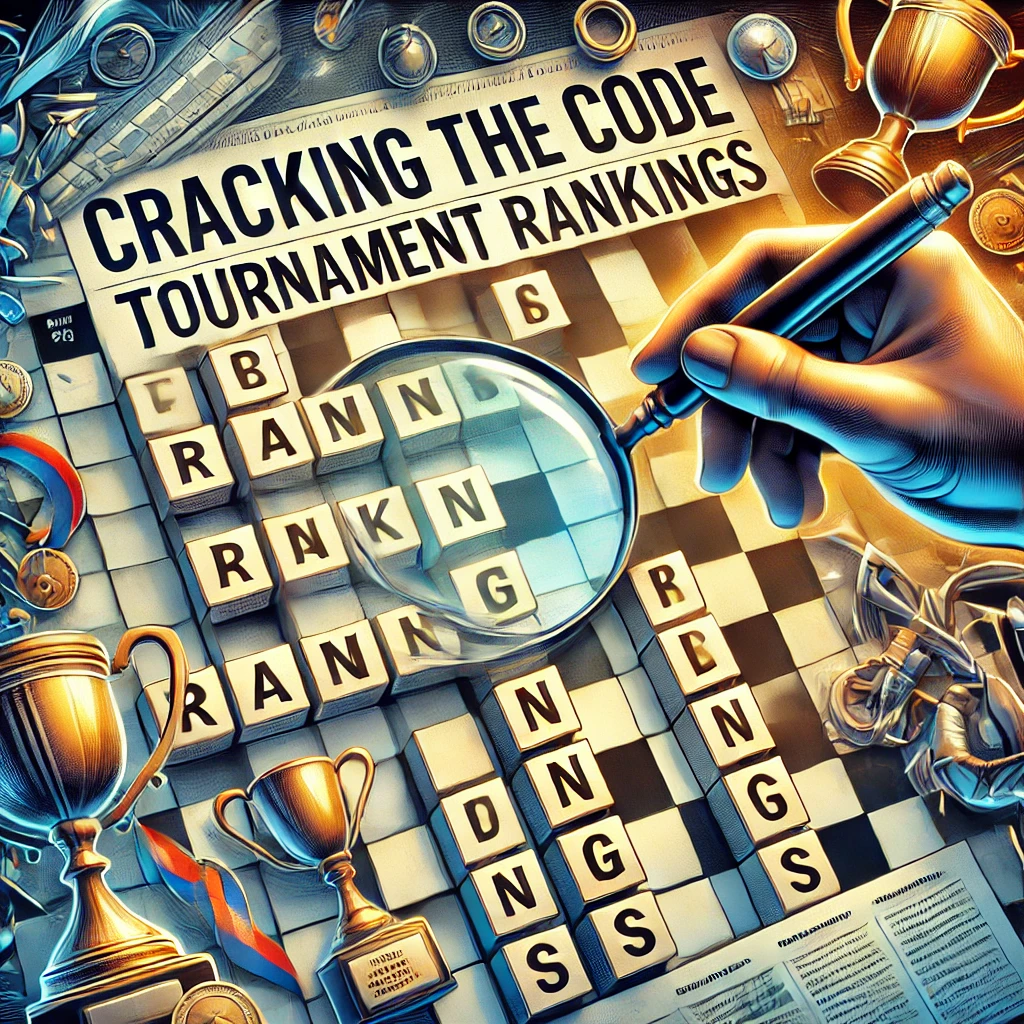For avid crossword enthusiasts, few things are as satisfying as filling in that final square, the puzzle completed, the clues conquered. Yet, every so often, a clue comes along that stumps even the most seasoned solvers, demanding a blend of lateral thinking and linguistic acumen. One such clue that recently left solvers scratching their heads was “Tournament Rankings.”
A Challenge for Crossword Lovers
Crossword puzzles are a staple of brain-teasers, offering solvers a unique blend of language, culture, and wordplay. The New York Times Crossword, widely regarded as the gold standard in the puzzling world, has consistently challenged and delighted its audience with clues that range from straightforward definitions to cryptic conundrums.
“Tournament Rankings” is one such clue that requires not just knowledge of words, but also an understanding of how different competitive settings function. This clue isn’t just about knowing a word; it involves understanding the context and terminology used in tournaments, from sports to competitive games.
Decoding the Clue: ELO
In the context of tournaments, rankings are essential to track players’ standings and performance over time. This brings us to a key term that frequently appears in crosswords: ELO.
The ELO rating system, named after its creator Arpad Elo, is a method for calculating the relative skill levels of players in two-player games such as chess. While it was originally designed for chess, the ELO system has been adapted to other competitive games, including online video games, where players or teams are ranked based on their performance against opponents.
- ELO Rating System:
- Origin: Developed by Arpad Elo for chess.
- Purpose: To rate players’ skills relative to one another.
- Usage: Adopted in various games and sports, including esports and online gaming.
ELO in Crossword Puzzles
The inclusion of “ELO” as an answer in crossword puzzles is a clever nod to its widespread recognition among those who follow competitive games and sports. It taps into the solvers’ knowledge of both language and specific cultural references.
For those unfamiliar with the term, encountering it in a crossword can be an enlightening moment, showcasing the intersection of language, logic, and specialized knowledge. This is what makes crosswords such a beloved pastime—they are not just exercises in vocabulary, but gateways to learning something new.
The Broader Appeal of Crosswords
The challenge of solving clues like “Tournament Rankings” lies in the crossword’s ability to engage a wide audience, from casual solvers to dedicated enthusiasts. It embodies the joy of crosswords—transforming a simple puzzle into an educational experience.
Solving crosswords is not just about filling in the blanks; it is about exploring language, testing one’s knowledge, and embracing the thrill of discovery. Whether it’s unearthing a rare word or learning about the intricacies of tournament rankings, each puzzle is a journey in itself.
Conclusion
As more and more people turn to crosswords for entertainment and mental exercise, the joy of cracking a challenging clue like “Tournament Rankings” underscores the timeless appeal of this beloved pastime. With each puzzle, solvers are reminded that there is always more to learn, one square at a time.
Whether you are a crossword novice or a seasoned solver, remember: every clue is a potential discovery, and every puzzle is an opportunity to expand your horizons.











